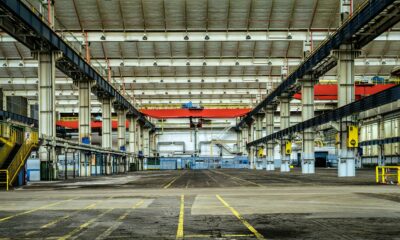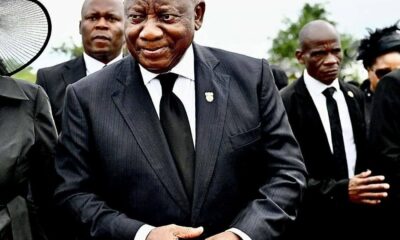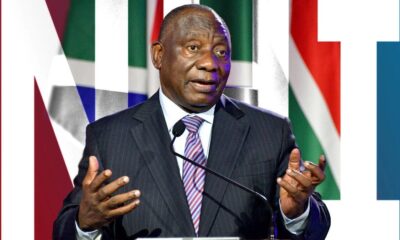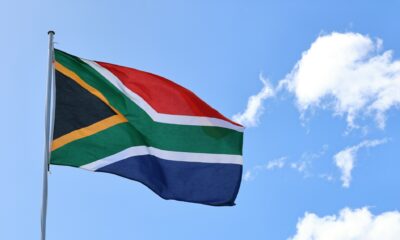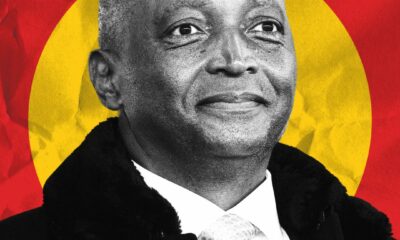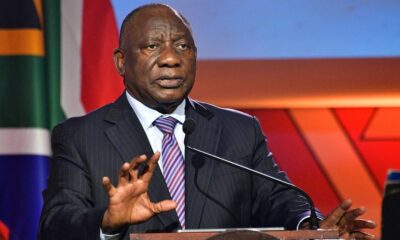News
Fear, Firearms and a Fractured Nation: Errol Musk’s Explosive Claims Reignite Old Wounds

A Night of Terror That Still Haunts Him
Errol Musk says the moment he saw terror flicker across his young daughter’s face, instinct took over.
According to him, a group of up to eight armed men stormed the farm he lived on north of Johannesburg in the 1990s. He grabbed his gun. Shots rang out.
And three people died.
“I did the killing,” he told IOL in a blunt, jarring admission. He insists he was the victim of a violent farm attack one so traumatic that, at 79, he still carries a firearm daily and struggles with intermittent hearing loss.
South Africans have heard many versions of crime stories over the years, but Musk’s account, impossible for journalists to independently confirm, immediately stirred intense public reaction. Some saw a man reliving trauma. Others saw a convenient story reinforcing an old and dangerous myth.
And that myth, the idea of a “white genocide” in South Africa, is where Musk’s interview took a sharp, unsettling turn.
A Controversial Narrative Re-Emerges
The interview followed CNN’s MisinfoNation: White Genocide, where correspondent Donie O’Sullivan confronted Musk about the role such rhetoric plays in global misinformation.
Fact-checkers, SA officials and even local courts have repeatedly stated that there is no white genocide in South Africa. Earlier this year, a South African judge dismissed the idea as “clearly imagined and not real” while ruling on a far-right inheritance case.
Political parties across the spectrum, including the DA, have rejected the claim outright.
But Musk, like his son Elon on X, still leans into the narrative. He told CNN he believed the US would be “doomed” if white Americans became a minority, adding that such a demographic shift would push society “back to the jungle”.
These remarks, delivered with startling confidence, landed like a punch. Especially when he insisted he “never saw oppression” during apartheid and described Black South Africans as having been “fed” and supported, rather than oppressed.
Online, South Africans reacted exactly as expected:
-
Shock and anger across Black Twitter.
-
Eye-rolling fatigue from those tired of the same old narratives.
-
Support from fringe groups abroad, who used Musk’s comments as fresh fuel.
In a country still negotiating its identity, these remarks feel like reopening a wound that never fully healed.
The Politics, the ANC and a Jab at ‘Raw Africa’
Beyond race, Musk painted a bleak picture of South Africa today calling the ANC “rotten”, slamming state institutions, and simultaneously suggesting the ruling party is the only buffer against perceived anti-white rhetoric from the EFF.
It’s a contradictory position:
The ANC is collapsing the country, he says, but also stabilising it.
He even joked that he’d “give Ramaphosa a hug and a kiss on the cheek” if government appointments were based purely on merit. It’s the kind of bizarre aside that almost distracts from the seriousness of his other claims almost.
There was also a peculiar detour into geopolitics: Musk praised Russia as a “first world country” with “no crime” and “strict governance”.
Anyone familiar with global politics would have raised an eyebrow at that one.
Who Is Errol Musk Today?
Born in Pretoria in 1946, Errol Musk has lived many lives: engineer, councillor, PFP member during apartheid, father to one of the world’s richest men, and now, a retiree living in Langebaan with 25 grandchildren scattered across the world.
He has long denied allegations reported by the New York Times about abuse in his family, dismissing the claims again as “fake” and “rubbish”.
On Elon, he is brief and businesslike:
“We speak maybe twice a week. They’re always flying somewhere.”
This matter-of-fact tone contrasts sharply with the explosive political claims he makes elsewhere and that contrast is part of what makes him such a lightning-rod figure.
What’s Missing From the Conversation
Musk’s story taps into three powerful South African currents:
fear, identity, and memory.
But context is crucial.
Farm attacks are real, and brutal. But researchers consistently show they are not racially targeted they are part of broader violent crime trends affecting all South Africans.
The “white genocide” theory has been repeatedly debunked locally and internationally, yet remains a convenient export for foreign politicians looking to stoke fear.
And apartheid’s legacy the very foundation of today’s inequalities cannot be dismissed with “we fed them”.
South Africans know their own history far too well for that.
A Country Still Wrestling With Itself
Errol Musk’s interview didn’t reveal anything new about South Africa itself. Crime, racial tension, governance frustration these are familiar South African realities.
What the interview did reveal is how easily personal trauma can become political ammunition, how misinformation is shaped by those who believe they are simply “telling it like it is”, and how South Africa’s story is constantly rewritten by those who lived through vastly different versions of it.
Whether one believes Musk or not, one thing is clear:
His words, amplified globally through TV screens and social media feeds, don’t just reflect South Africa’s divisions they echo them.
And the country, as always, must decide what to do with the echo.
{Source: IOL}
Follow Joburg ETC on Facebook, Twitter , TikTok and Instagram
For more News in Johannesburg, visit joburgetc.com

